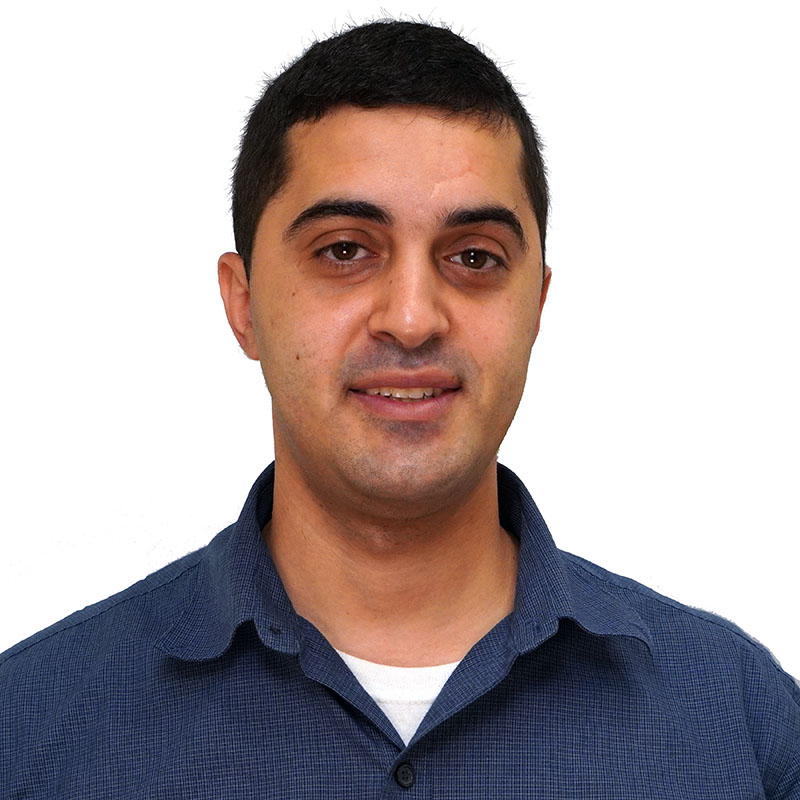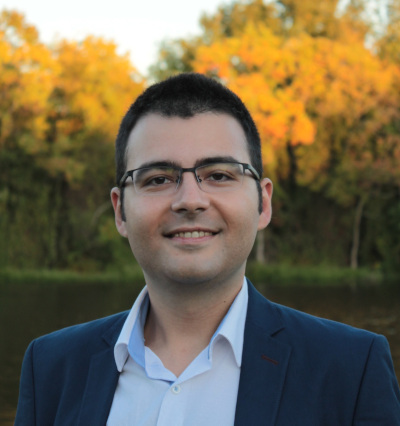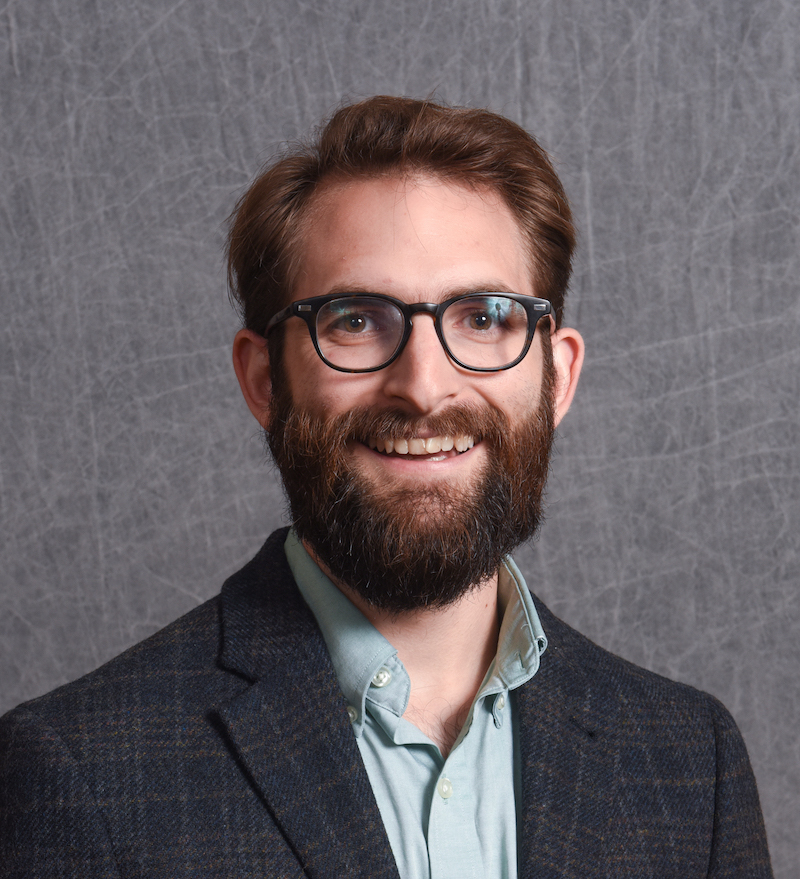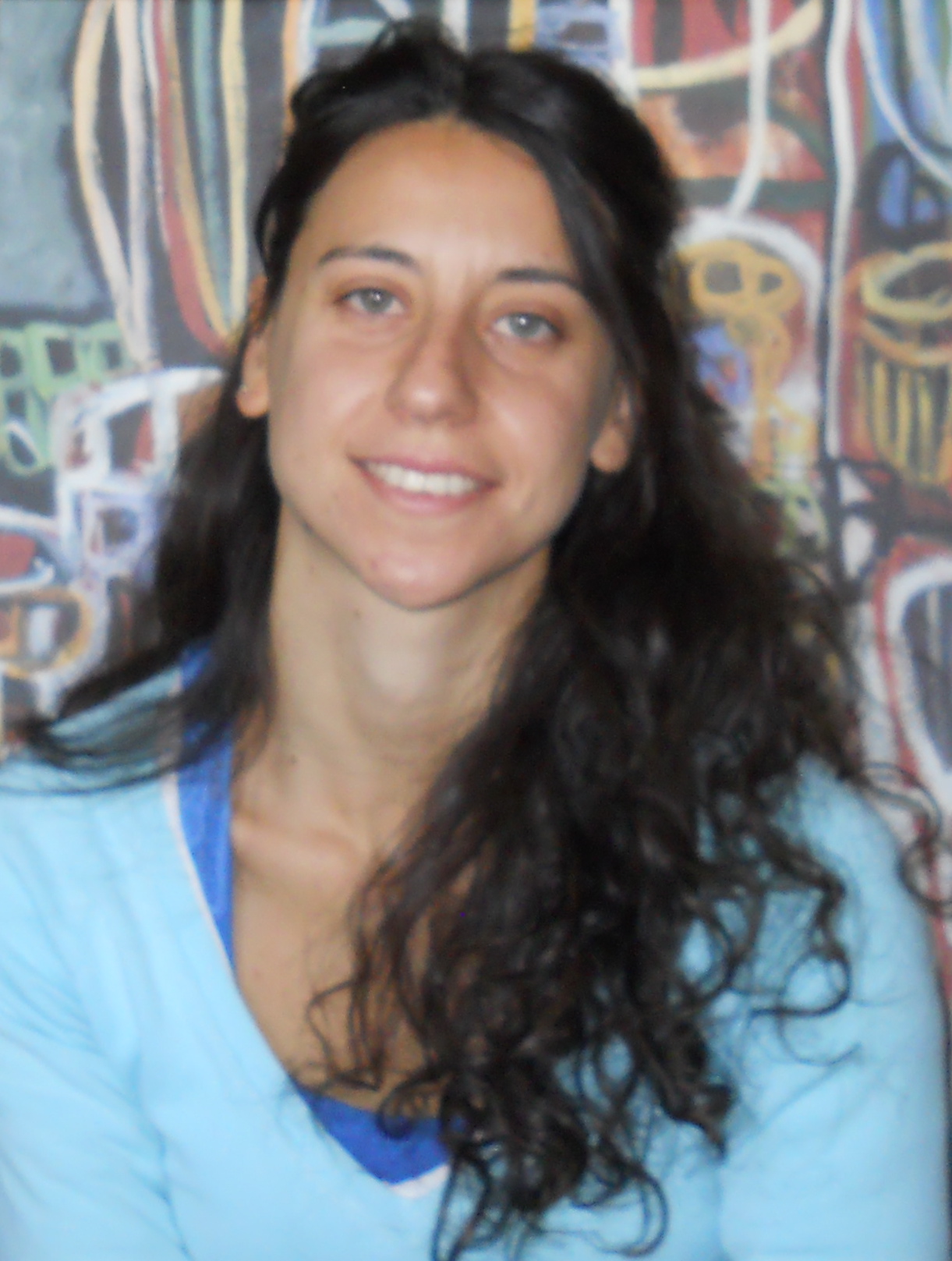SCI - People
Core Faculty
William Enck, co-Director
 William Enck is an Associate Professor in the Department of Computer Science at the North Carolina State University where he is director of the Wolfpack Security and Privacy Research (WSPR) laboratory. Prof. Enck's research interests span the broad area of systems security, with efforts addressing security challenges in mobile applications, operating systems, cloud services, and networking. In particular, his work in mobile application security has led to significant consumer awareness and changes to platforms. Prof. Enck was awarded the National Science Foundation CAREER Award and regularly serves on program committees for top conferences in security such as USENIX Security, IEEE Security and Privacy, ACM CCS, and NDSS. He is serving as department editor for IEEE Security and Privacy Magazine, as associate editor for ACM TOIT, and on the steering committees of the USENIX Security Symposium and ACM WiSec. He was program co-chair of USENIX Security 2018 and ACM WiSec 2016. Prior to joining NC State, Prof. Enck earned his Ph.D., M.S., and B.S in Computer Science and Engineering from the Pennsylvania State University in 2011, 2006, and 2004, respectively. Prof. Enck is a member of the ACM, IEEE, ISSA, and USENIX.
William Enck is an Associate Professor in the Department of Computer Science at the North Carolina State University where he is director of the Wolfpack Security and Privacy Research (WSPR) laboratory. Prof. Enck's research interests span the broad area of systems security, with efforts addressing security challenges in mobile applications, operating systems, cloud services, and networking. In particular, his work in mobile application security has led to significant consumer awareness and changes to platforms. Prof. Enck was awarded the National Science Foundation CAREER Award and regularly serves on program committees for top conferences in security such as USENIX Security, IEEE Security and Privacy, ACM CCS, and NDSS. He is serving as department editor for IEEE Security and Privacy Magazine, as associate editor for ACM TOIT, and on the steering committees of the USENIX Security Symposium and ACM WiSec. He was program co-chair of USENIX Security 2018 and ACM WiSec 2016. Prior to joining NC State, Prof. Enck earned his Ph.D., M.S., and B.S in Computer Science and Engineering from the Pennsylvania State University in 2011, 2006, and 2004, respectively. Prof. Enck is a member of the ACM, IEEE, ISSA, and USENIX.
Laurie Williams, co-Director
 Laurie Williams is a Distinguished University Professor in the Computer Science Department of the College of Engineering at North Carolina State University (NCSU). Laurie is a co-director of the NCSU Secure Computing Institute (SCI) , the NCSU Science of Security Lablet, and the North Carolina Partnership for Cybersecurity Excellence (NC-PaCE). Laurie's research focuses on software security and secure software supply chain. She is an associate editor-in-chief of the IEEE Security and Privacy magazine. Laurie is an IEEE Fellow and an ACM Fellow. Laurie has a BS in Industrial Engineering from Lehigh University, an MBA from Duke University, and a PhD in Computer Science from the University of Utah.
Laurie Williams is a Distinguished University Professor in the Computer Science Department of the College of Engineering at North Carolina State University (NCSU). Laurie is a co-director of the NCSU Secure Computing Institute (SCI) , the NCSU Science of Security Lablet, and the North Carolina Partnership for Cybersecurity Excellence (NC-PaCE). Laurie's research focuses on software security and secure software supply chain. She is an associate editor-in-chief of the IEEE Security and Privacy magazine. Laurie is an IEEE Fellow and an ACM Fellow. Laurie has a BS in Industrial Engineering from Lehigh University, an MBA from Duke University, and a PhD in Computer Science from the University of Utah.
Amro Awad
 Amro Awad joined the ECE Department of NC State University in Fall 2020. Before joining NC State, he was an assistant professor at the University of Central Florida (UCF) for three years. Prior to joining academia, he was a senior member of technical staff (SMTS) at Sandia National Laboratories in Albuquerque, NM. He earned his Ph.D. in Computer Engineering from NC State in 2016. Dr. Awad had several research stints at government and industrial research labs, such as AMD Research, Los Alamos National Lab, HP Labs, and Air Force Research Laboratory. He holds six U.S. patents and has several pending. His research has been published in the most prestigious computer architecture conferences, such as ISCA, MICRO, ASPLOS, and HPCA. His research group has been funded by DARPA, Sandia National Laboratories, NSF, Naval Surface Warfare Centers, and Air Force Research Lab. His research interests include secure hardware architectures, memory systems, and system-level integration of emerging technologies.
Amro Awad joined the ECE Department of NC State University in Fall 2020. Before joining NC State, he was an assistant professor at the University of Central Florida (UCF) for three years. Prior to joining academia, he was a senior member of technical staff (SMTS) at Sandia National Laboratories in Albuquerque, NM. He earned his Ph.D. in Computer Engineering from NC State in 2016. Dr. Awad had several research stints at government and industrial research labs, such as AMD Research, Los Alamos National Lab, HP Labs, and Air Force Research Laboratory. He holds six U.S. patents and has several pending. His research has been published in the most prestigious computer architecture conferences, such as ISCA, MICRO, ASPLOS, and HPCA. His research group has been funded by DARPA, Sandia National Laboratories, NSF, Naval Surface Warfare Centers, and Air Force Research Lab. His research interests include secure hardware architectures, memory systems, and system-level integration of emerging technologies.
Aydin Aysu
 Aydin Aysu is currently an assistant professor and Bennett Faculty Fellow at the Electrical and Computer Engineering Department of North Carolina State University, where he leads HECTOR: Hardware Cybersecurity Research Lab. He got his M.S from Sabanci University in Istanbul, Turkey, and his Ph.D. from Virginia Tech. Before joining NC State, he was a post-doctoral researcher at the University of Texas at Austin. Dr. Aysu's interests are broadly on hardware security research and cybersecurity education. He has won the 2019 NC State Faculty Development Award, 2019 NSF Research Initiative (CRII) award, the 2020 Bennett Faculty award, and the 2020 NSF CAREER award. His papers have been nominated for the best paper award both at 2018 and 2019 IEEE HOST conferences and have won the best paper award at 2019 GLS-VLSI and 2020 DATE conferences. He is an IEEE senior member and has an Erdös number of 3.
Aydin Aysu is currently an assistant professor and Bennett Faculty Fellow at the Electrical and Computer Engineering Department of North Carolina State University, where he leads HECTOR: Hardware Cybersecurity Research Lab. He got his M.S from Sabanci University in Istanbul, Turkey, and his Ph.D. from Virginia Tech. Before joining NC State, he was a post-doctoral researcher at the University of Texas at Austin. Dr. Aysu's interests are broadly on hardware security research and cybersecurity education. He has won the 2019 NC State Faculty Development Award, 2019 NSF Research Initiative (CRII) award, the 2020 Bennett Faculty award, and the 2020 NSF CAREER award. His papers have been nominated for the best paper award both at 2018 and 2019 IEEE HOST conferences and have won the best paper award at 2019 GLS-VLSI and 2020 DATE conferences. He is an IEEE senior member and has an Erdös number of 3.
Anupam Das
 Anupam Das is an Assistant Professor in the Department of Computer Science at North Carolina State University. His research interests lie in the domain of security and privacy with a special focus towards designing secure and privacy-preserving technologies. His work has looked at understanding and mitigating the security and privacy risks of exposing sensors, embedded in smart devices. Most recently, he has been working on designing novel frameworks for enhanced transparency and protection in the Internet of Things (IoT). Prior to joining NC State, he worked as a postdoctoral fellow at Carnegie Mellon University. He received his Ph.D. in Computer Science in 2016 from the University of Illinois at Urbana-Champaign where he was a recipient of Fulbright Science and Technology fellowship. He previously served as an Assistant Professor in the department of Computer Science and Engineering at the Bangladesh University of Engineering and Technology (BUET).
Anupam Das is an Assistant Professor in the Department of Computer Science at North Carolina State University. His research interests lie in the domain of security and privacy with a special focus towards designing secure and privacy-preserving technologies. His work has looked at understanding and mitigating the security and privacy risks of exposing sensors, embedded in smart devices. Most recently, he has been working on designing novel frameworks for enhanced transparency and protection in the Internet of Things (IoT). Prior to joining NC State, he worked as a postdoctoral fellow at Carnegie Mellon University. He received his Ph.D. in Computer Science in 2016 from the University of Illinois at Urbana-Champaign where he was a recipient of Fulbright Science and Technology fellowship. He previously served as an Assistant Professor in the department of Computer Science and Engineering at the Bangladesh University of Engineering and Technology (BUET).
Alexandros Kapravelos
 Alexandros Kapravelos is an Assistant Professor in the Department of Computer Science at NC State University. He received his PhD in Computer Science from University of California, Santa Barbara in 2015. His research interests span the areas of systems and software security. Currently, he studies how the web changes on the client side via browser extensions and how we can protect the browser from malicious client-side attacks. He is also interested in Internet privacy and browser fingerprinting specifically, where he is working on making Internet users less distinctive while they browse the web. He is the lead developer of Wepawet, a publicly available system that detects drive-by downloads with the use of an emulated browser, Revolver, a system that detects evasive drive-by download attempts, and Hulk, a browser extension analysis system.
Alexandros Kapravelos is an Assistant Professor in the Department of Computer Science at NC State University. He received his PhD in Computer Science from University of California, Santa Barbara in 2015. His research interests span the areas of systems and software security. Currently, he studies how the web changes on the client side via browser extensions and how we can protect the browser from malicious client-side attacks. He is also interested in Internet privacy and browser fingerprinting specifically, where he is working on making Internet users less distinctive while they browse the web. He is the lead developer of Wepawet, a publicly available system that detects drive-by downloads with the use of an emulated browser, Revolver, a system that detects evasive drive-by download attempts, and Hulk, a browser extension analysis system.
Samira Mirbagher Ajorpaz
 Dr. Mirbagher, an assistant professor at North Carolina State University's Department of Electrical and Computer Engineering, also serves in the computer science faculty. With a BS from the University of Isfahan and a PhD from Texas A&M University, she later became a 2020 Postdoctoral Fellow at the University of California San Diego. Her research melds computer architecture, systems security, and machine learning, emphasizing efficient and secure microarchitectural designs and refining machine learning models for hardware. Notably, her work has influenced the security, performance and power efficiency of newer CPU designs, and she has shared her expertise in prominent venues like ISCA and MICRO while also contributing to program committees in industry track and academic of renowned conferences such as HPCA, ASPLOS, MICRO and ISCA.
Dr. Mirbagher, an assistant professor at North Carolina State University's Department of Electrical and Computer Engineering, also serves in the computer science faculty. With a BS from the University of Isfahan and a PhD from Texas A&M University, she later became a 2020 Postdoctoral Fellow at the University of California San Diego. Her research melds computer architecture, systems security, and machine learning, emphasizing efficient and secure microarchitectural designs and refining machine learning models for hardware. Notably, her work has influenced the security, performance and power efficiency of newer CPU designs, and she has shared her expertise in prominent venues like ISCA and MICRO while also contributing to program committees in industry track and academic of renowned conferences such as HPCA, ASPLOS, MICRO and ISCA.
Brad Reaves
 Brad Reaves is an Assistant Professor in the Department of Computer Science at the North Carolina State University. His research is dedicated to measuring and improving the security of computer systems, with a particular emphasis on telephone networks and mobile platforms. His work has addressed detection and measurement of mobile malware in the wild, identified systemic risks in developing world mobile money systems, and provided new techniques to distinguish legitimate and fraudulent phone calls. He holds a PhD from the University of Florida, an MS in Computer Science from Georgia Tech as well as a BS and MS in Computer Engineering from Mississippi State University. His work has been recognized with two best paper awards and is regularly published at top venues.
Brad Reaves is an Assistant Professor in the Department of Computer Science at the North Carolina State University. His research is dedicated to measuring and improving the security of computer systems, with a particular emphasis on telephone networks and mobile platforms. His work has addressed detection and measurement of mobile malware in the wild, identified systemic risks in developing world mobile money systems, and provided new techniques to distinguish legitimate and fraudulent phone calls. He holds a PhD from the University of Florida, an MS in Computer Science from Georgia Tech as well as a BS and MS in Computer Engineering from Mississippi State University. His work has been recognized with two best paper awards and is regularly published at top venues.
Alessandra Scafuro
 Alessandra Scafuro is an Assistant Professor in the Department of Computer Science at NCSU. She received her PhD from University of Salerno, Italy, in 2013. Prior to joining the NC State faculty, she was a post-doc at UCLA, and held a join post-doc position at Boston University and Northeastern University. Her research interests are in the theoretical foundations as well as practical applications of Cryptography. Presently she studies the problem of designing protocols for secure computation. The goal of secure computation is to allow several parties to compute a function of their joint inputs, in such a way that all participants learn the output of the function but yet, they do not learn the inputs of the other parties. This problem is relevant in scenarios where multiple parties are interested in evaluating function on sensitive data that must remain private, for example, running tests on medical records. While from a theoretical point of view this problem has been extensively studied, the challenge today is to design protocols that are efficient and usable in real world applications.
Alessandra Scafuro is an Assistant Professor in the Department of Computer Science at NCSU. She received her PhD from University of Salerno, Italy, in 2013. Prior to joining the NC State faculty, she was a post-doc at UCLA, and held a join post-doc position at Boston University and Northeastern University. Her research interests are in the theoretical foundations as well as practical applications of Cryptography. Presently she studies the problem of designing protocols for secure computation. The goal of secure computation is to allow several parties to compute a function of their joint inputs, in such a way that all participants learn the output of the function but yet, they do not learn the inputs of the other parties. This problem is relevant in scenarios where multiple parties are interested in evaluating function on sensitive data that must remain private, for example, running tests on medical records. While from a theoretical point of view this problem has been extensively studied, the challenge today is to design protocols that are efficient and usable in real world applications.
Dominik Wermke
 Dominik Wermke is an Assistant Professor in the Department of Computer Science at North Carolina State University. His research interests center around empowering software experts to design, develop, and deploy secure, privacy-respecting, and trust-worthy software. His general areas of research are in usable security & privacy, software supply chain security & transparency, the open source ecosystem, and supporting software experts in designing secure and user-friendly systems. Prior to joining NC State, Dominik was a researcher at the CISPA Helmholtz Center for Information Security and part of the TeamUSEC research group for human-centered security. He received his Dr. rer. nat. (PhD equivalent) in computer science from Leibniz University Hannover in 2023 and both a M.Sc. and B.Sc. from Saarland University in 2016 and 2015 respectively.
Dominik Wermke is an Assistant Professor in the Department of Computer Science at North Carolina State University. His research interests center around empowering software experts to design, develop, and deploy secure, privacy-respecting, and trust-worthy software. His general areas of research are in usable security & privacy, software supply chain security & transparency, the open source ecosystem, and supporting software experts in designing secure and user-friendly systems. Prior to joining NC State, Dominik was a researcher at the CISPA Helmholtz Center for Information Security and part of the TeamUSEC research group for human-centered security. He received his Dr. rer. nat. (PhD equivalent) in computer science from Leibniz University Hannover in 2023 and both a M.Sc. and B.Sc. from Saarland University in 2016 and 2015 respectively.
Chau-Wai Wong
 Chau-Wai Wong is an Assistant Professor with the ECE Department and the Forensic Sciences Cluster, North Carolina State University. Before joining NC State, he was a Data Scientist with Origin Wireless, Inc., Maryland. Dr. Wong works on forensics and privacy problems through the lens of signal processing and statistics. His group's recent projects include: i) authenticating physical objects using unclonable microscopic structures acquired by consumer cameras, ii) time and geolocation identification using a power-network signature naturally embedded in multimedia recordings, and iii) federated (machine) learning for improving generalizability without sacrificing the data privacy of a user/organization. He was involved in organizing the third edition of the IEEE Signal Processing Cup in 2016 on electric network frequency forensics. Dr. Wong received his B.Eng. and M.Phil. from The Hong Kong Polytechnic University and his PhD from the University of Maryland, College Park.
Chau-Wai Wong is an Assistant Professor with the ECE Department and the Forensic Sciences Cluster, North Carolina State University. Before joining NC State, he was a Data Scientist with Origin Wireless, Inc., Maryland. Dr. Wong works on forensics and privacy problems through the lens of signal processing and statistics. His group's recent projects include: i) authenticating physical objects using unclonable microscopic structures acquired by consumer cameras, ii) time and geolocation identification using a power-network signature naturally embedded in multimedia recordings, and iii) federated (machine) learning for improving generalizability without sacrificing the data privacy of a user/organization. He was involved in organizing the third edition of the IEEE Signal Processing Cup in 2016 on electric network frequency forensics. Dr. Wong received his B.Eng. and M.Phil. from The Hong Kong Polytechnic University and his PhD from the University of Maryland, College Park.
Affiliated Faculty
Florence Martin
 Dr. Florence Martin is a Professor in Learning Design and Technology at North Carolina State University. Dr. Martin engages in research to create transformative learning experiences through effective design and integration of digital teaching and learning innovations. In recent years, she has researched on the design of online learning environments and cybersecurity education with a focus on digital safety. Dr. Martin served as the President of the Multimedia Production Division and Division of Distance Learning for Association for Educational Communications and Technology. She currently serves as a Senior Associate Editor for Online Learning Journal, AERA Division C Section Chair for Engineering and Computer Science, and on the advisory council for North Carolina Virtual Public Schools.
Dr. Florence Martin is a Professor in Learning Design and Technology at North Carolina State University. Dr. Martin engages in research to create transformative learning experiences through effective design and integration of digital teaching and learning innovations. In recent years, she has researched on the design of online learning environments and cybersecurity education with a focus on digital safety. Dr. Martin served as the President of the Multimedia Production Division and Division of Distance Learning for Association for Educational Communications and Technology. She currently serves as a Senior Associate Editor for Online Learning Journal, AERA Division C Section Chair for Engineering and Computer Science, and on the advisory council for North Carolina Virtual Public Schools.
Additional Personnel
Laura Rodgers, Director of Cybersecurity Practice
 Laura Rodgers is the SCI Director of Cybersecurity Practice and the Director of NC-PaCE where she serves as the technical liaison between industry, government agencies, the Secure Computing Institute, and NC-PaCE. As Director of NC-PaCE, Rodgers works with the member education institutions and industry to develop programs that support cybersecurity in North Carolina. Prior to joining NC State, Rodgers was the Sr. Cyber Compliance Manager for the North Carolina Military Business Center, where she helped defense contractors develop cybersecurity compliance programs. She has held a variety of positions in the defense industry, including with Lockheed Martin’s MX and Titan Missile Programs and General Dynamics Information Technology’s urban training programs. Ms. Rodgers holds a B.S in Accounting and an MBA from Oklahoma State University. She is a certified Data Privacy and Protection Specialist and is working toward a CMMC Certified Professional certification.
Laura Rodgers is the SCI Director of Cybersecurity Practice and the Director of NC-PaCE where she serves as the technical liaison between industry, government agencies, the Secure Computing Institute, and NC-PaCE. As Director of NC-PaCE, Rodgers works with the member education institutions and industry to develop programs that support cybersecurity in North Carolina. Prior to joining NC State, Rodgers was the Sr. Cyber Compliance Manager for the North Carolina Military Business Center, where she helped defense contractors develop cybersecurity compliance programs. She has held a variety of positions in the defense industry, including with Lockheed Martin’s MX and Titan Missile Programs and General Dynamics Information Technology’s urban training programs. Ms. Rodgers holds a B.S in Accounting and an MBA from Oklahoma State University. She is a certified Data Privacy and Protection Specialist and is working toward a CMMC Certified Professional certification.